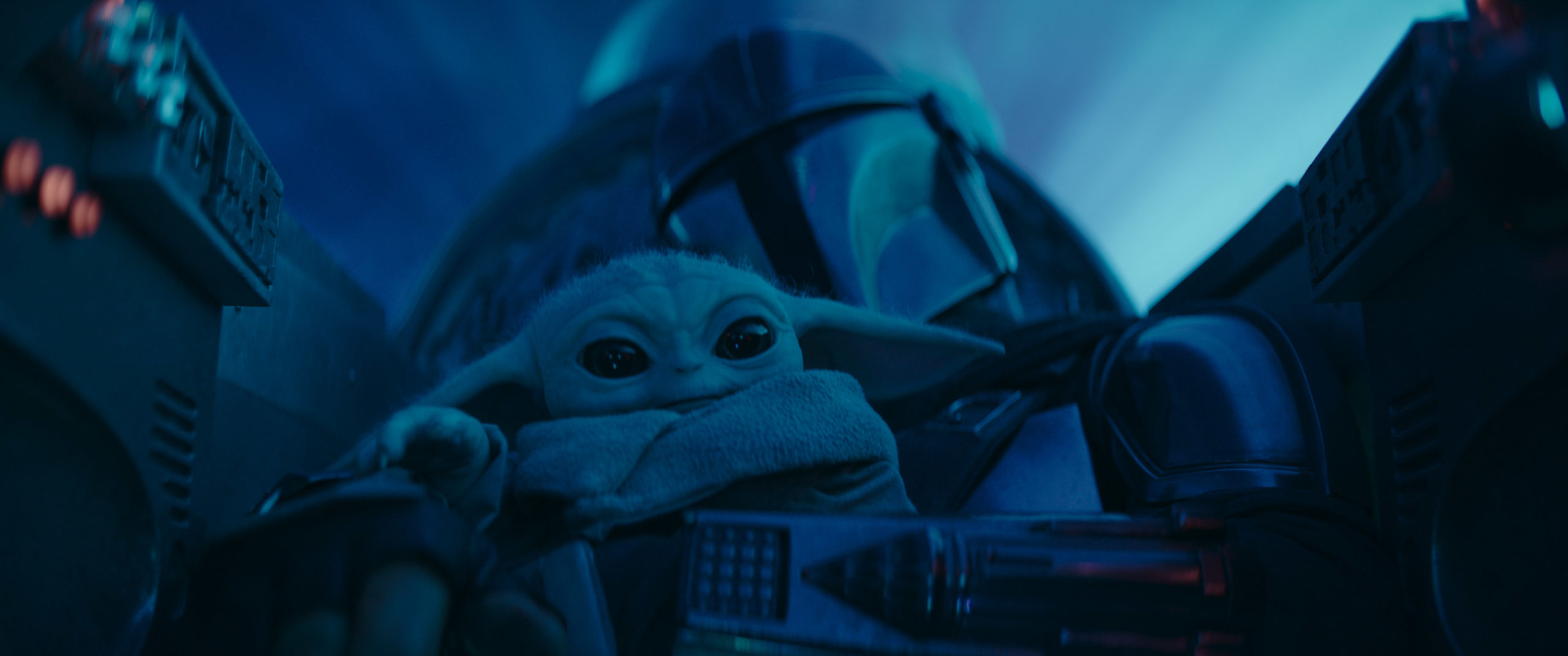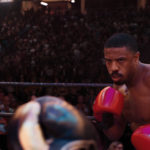
I want to start this season long series of Moon Knight discussions by sharing how I have watched the series. This is the first time I’m going to write about an MCU show where I have advance knowledge of what’s going to happen. I’ve seen the first four (of six) episodes of Moon Knight. Accordingly, I’m going to be extremely cautious about anything that could be considered a spoiler for future episodes. One of my joys in watching these shows is to speculate about what’s next, but I won’t be doing that here. I don’t want to risk ruining anything for you readers.
That said, holy shit does this show work for me. You can read my spoiler-free review of the first four episodes of the series here: “Moon Knight” Is the Strongest Entry in the Disney+ MCU Canon Yet (Review). Everything below will be a discussion of what actually happens in the first episode of Moon Knight. Spoilers abound.
The choice to start this series with a cold open of Ethan Hawke’s Arthur Harrow smashing glass to fill his shoes sets a specific tone for the series. It’s not as tragic as Hawkeye’s introduction in Avengers: Endgame, but it sets a standard for intensity and discomfort that shifts the usual tonal place where the MCU resides. It’s also the first of a great many overt reference to other “history adventure” series. It’s deeply the purview of a Dan Brown novel (“The Da Vinci Code” and “Inferno”) to have this sort of ascetic display of zealousness to open the story telling.

“A Man Without Love” by Engelbert Humperdinck plays when we are first introduced to Oscar Isaac’s Steven Grant. It’s a perfect encapsulation of the disquiet that Grant feels as he goes about the particularly strange details of his day-to-day life. Generally when we see a going-through-the-motions montage in a movie, it doesn’t have bedside sand, front door tape, and chained ankle bracelets as part of the protagonist’s efforts to prevent his strange midnight meanderings. That we’re fast introduced to Grant as a gift shop employee who can’t even remember asking out his co-worker leans into a pitch perfect depiction of a man grappling as much with his own mental confusion as the circumstances of his life.
The shift of Steven Grant from his comic origins as a Bruce Wayne-derivative billionaire businessman to a nebbish museum employee is a savvy move for the series. It gives the show the credibility to explain the mythological twists that will come to define much of the storytelling while escaping the limitless technological possibilities that a Batman or Iron Man brings to the table. Isaac is absolutely wonderful in these moments. His “aww bollocks!” line reading when he first meets Harrow is a fantastic little encapsulation of a character out of his element.

I’m delighted by F. Murray Abraham’s turn as Khonshu, the Egyptian lord of the moon who influences Grant’s body. The choice to utilize Khonshu as an omnipresent symbiote-esque voice imbues a jolt of added tension in Grant’s journey. The scenes where Grant keeps phasing in and out of consciousness while thwarting Harrow’s henchmen is an excellently crafted way to both dive into the Grant character and deal with the budgetary limitations that inevitably come with a six episode TV show instead of a two hour film. It’s clear tonally as well that even as Wham!’s “Wake Me Up Before You Go-Go” jams in the background this is a show far more open to violence than past Disney+ MCU content. Hawkeye’s big Children of Men-inspired chase scene keeps all the violence light and generally suggests the survival of the victims. In Moon Knight, the antagonists are brutally squashed by jackknifed tractor trailers and falling timbers. Like the Harrow opening sequence, it helps place Moon Knight in a tonal place more akin to the Netflix quasi-MCU shows like Daredevil or Punisher than a conventional superhero bop.
When Grant returns from his first foreign jaunt with Khonshu and Marc Spector, Isaac sells the absolute hell out of the character’s confusion and torment. His face echoes not just confusion, but simmering anger and frustration about his lot in life. When he cracks his veganism to order a steak at his aborted date, it’s the clear act of a man who feels his world crumbling around him.

One little detail I adore is the way Grant leaves voicemails for his mom throughout the episode. It’s believably humanizing and specific. That he fails to connect with her fits perfectly with the disquiet the character shows throughout the episode. His ending of each call with “Laters Gators” is precisely the sort of thing that a boy might maintain with a parent until far later in life, especially a boy as socially restrained as this Steven Grant.
Grant’s discovery of a cell phone in his flat that he uses to call Layla, the wonderful May Calamawy who we’ll discuss extensively in future columns, is a delightful sequence of awakening. I love the way that call triggers and begins to externalize the internal turmoil of the character. It is within moments of ending the brief call with Layla that the Marc Spector persona most overtly rears his head. The sequence is even more perfect when director Mohamad Diab transitions Grant’s body horror into a sequence of overt traditional horror. A giant man-like figure with an oversized bird skull begins tracking Grant through the dark hallways and flickering lights of his apartment building. These sequences aren’t “scary” to grizzled horror veterans, but they do serve to set a tonal place for Moon Knight that’s far more threatening than other MCU projects.

The first sequence between Ethan Hawke and Oscar Isaac is electric. Harrow’s calm gravity balances beautifully with Isaac’s mewling cowardice. Even a quip about Avatar feels right as the two characters joust around the reality of Grant’s emotional situation, one that Harrow understands far more fully. That Harrow speaks with certainty on Khonshu’s nature is a savvy way to avoid too much exposition while setting the stakes for the primary conflict that will define the series.
The show’s last sequence – Night at the Museum meets The Mummy – sees a giant Egyptian dog creature chase Grant through the museum where he is employed. It’s a reasonably effective action beat. It works best in the details – a display case reflection of Grant that shows a very different reality in the mirror or Isaac’s panicked reaction as Grant nearly smashes an ancient vase. The sequence where Grant first allows himself to give ground to the Marc Spector identity that resides within him is some peak superhero origin stuff. Isaac sells the absolute hell out of his submission to his new normal, his alternate identity. It leads to an exciting and fairly viscous sequence where, for the first time, we see the character dawn his trademark white armor as he smites a villain.
Moon Knight is off to an excellent start and I look forward to talking about episode two next week.

Moon Knight’s first episode “Disassociation” is available on Disney+ now. We’ll be back next week with a discussion of Moon Knight’s second episode “Lost My Temper.”
















